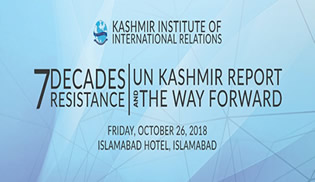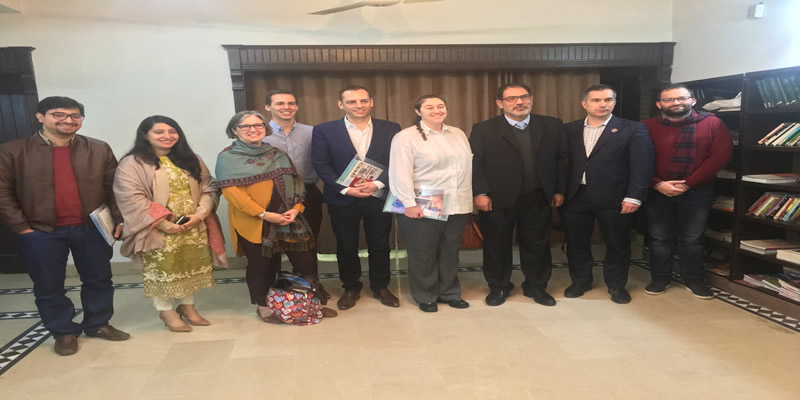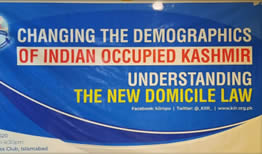Jammu Martyrs Day: An Interactive Dialogue with the Young Scholars
On the 72nd Kashmir Martyrs Day, Kashmir Institute of International Relations (KIIR) has organized an interactive Session with the young scholars from the different Universities of Islamabad and AJK. Director Program Altaf Hussain Wani, while welcoming all the participants said that Future belongs to the youth and their participation in every walk of life is important. Today we’ve gathered here to deliberate on different weak areas of Kashmir where the work is needed. He said that as a young scholar there is a dire need to contribute their efforts in print media and KIIR will facilitate the volunteers who would love to work on Kashmir.
He further shed light on the historical background of the issue and raised question about 6th November that why this day is known to be the darkest day in the history of Kashmir? He narrated stories from different perspectives on “Kashmiri liberation struggle” and told the scholars that According to scholar Ian Copland, “the administration's pogrom against its Muslim subjects in Jammu was undertaken partly out of revenge for the Poonch rebellion that started earlier.”
The struggle started in August 1947 in the different parts of Punjab and then Jammu because at that time there were only 45% population were muslims so the revolt started from Jammu and later escalated to the different parts of Kashmir, from August-October there were no massacre but Unlike the Kashmir valley which remained mostly calm during this transition period, the Jammu province which was contiguous to Punjab, experienced mass migration that led to violent inter-religious activity, which provoked counter-violence on Jammu Muslims.On the other hand Scholar Ilyas Chattha and Jammu journalist Ved Bhasin blame the mishandling of law and order by Maharaja Hari Singh and his armed forces in Jammu, for the large scale communal violence in the region.The activists of Rashtriya Swayamsevak Sang (RSS) attacked various villages of Jmmu district-Amrey, Cheak, Atmapur and Kochpura and after killing muslims they looted their possessions and set their houses on fire. RSS activists played a key role in planning and executing the riots.
Almost 200,000-237,000 muslims were martyred in the first week of November, while migrating, these Kashmiris were killed ferociously by the forces of the then ruler of Kashmir, Maharaja Hari sing, Hindu extremists and Indian Army. He further added that this week is called as “the bleakest chapter of Kashmir liberation struggle”. This bloodshed of innocent people shall not go waste.
At the end of the discussion Director Altaf Hussain Wani, offered his best regards to all the participants for coming and together we will rise and shine.
Past Events














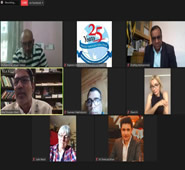
_1627626452.jpg)
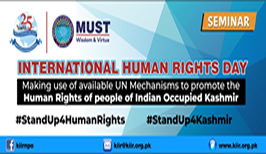
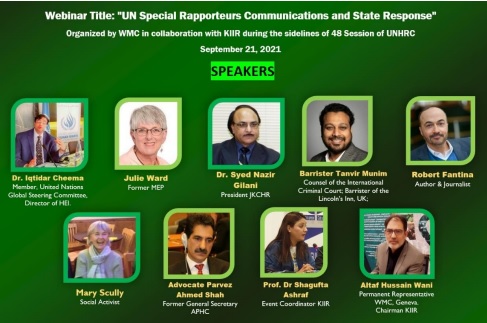
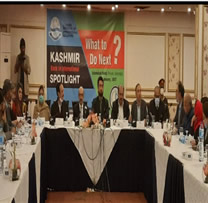
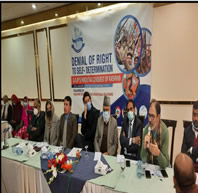
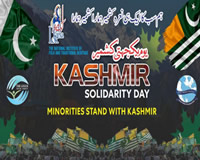
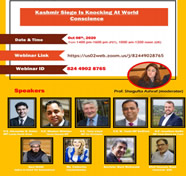
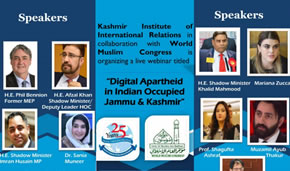
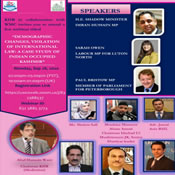
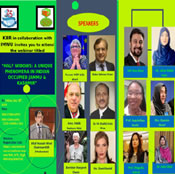
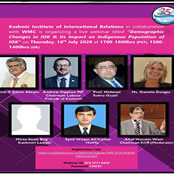
_1627627084.jpg)
